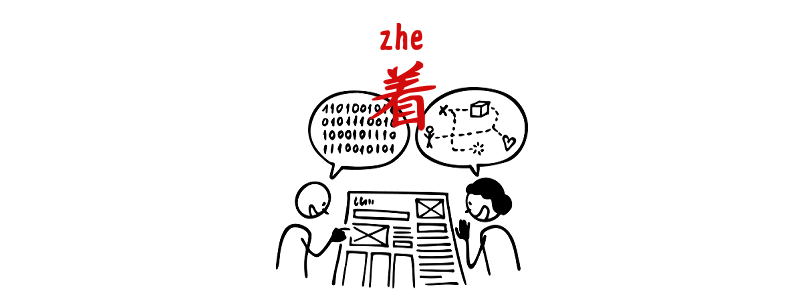Grammar Point:In Chinese, if you want to say that someone makes another person do something, or that something causes a feeling or action, you can use special words called causative verbs. The most common ones are 叫 jiào, 讓让 ràng, 使 shǐ, and 令 lìng. They all mean something like “make,” “let,” or “cause,” but they are used in different…
Author: tiffany
Furthermore – 而且 érqiě
Grammar Point:In Chinese, “furthermore” can be expressed using the word 而且 érqiě. It’s a conjunction used to connect related information, often adding emphasis. Structure S + V/Adj +,而且 érqiě + V/Adj 台灣Táiwān的de水果shuǐguǒ甜tián而且érqiě便宜piányí台湾Táiwān的de水果shuǐguǒ甜tián而且érqiě便宜piányiTaiwanese fruits are sweet and inexpensive. 我wǒ每天měitiān都dōu有yǒu中文zhōngwén課kè, 而且érqiě我wǒ週末zhōumò的時候deshíhòu還hái做zuò語言yǔyán交換jiāohuàn我wǒ每天měitiān都dōu有yǒu中文zhōngwén课kè, 而且érqiě我wǒ周末zhōumò的时候deshíhòu还hái做zuò语言yǔyán交换jiāohuànI have Chinese classes every day, and during weekends, I also engage in language exchange. 我wǒ這幾天zhèjǐtiān一直yìzhí覺得juéde沒méi胃口wèikǒu,…
Without A, there is no B – 沒有 A 就沒有 B
Grammar Point:The Chinese pattern 沒有 méiyǒu A 就沒有 jiù méiyǒu B expresses a cause-and-effect relationship: A is the condition or foundation for B. It’s similar to the English expression “without A, there is no B. Structure 沒有 méiyǒu A + 就沒有 jiù méiyǒu B 沒有méiyǒu你nǐ就jiù沒有méiyǒu今天jīntiān的de我wǒ没有méiyǒu你nǐ就jiù没有méiyǒu今天jīntiān的de我wǒWithout you, then there’s no today’s me. 沒有méiyǒu努力nǔlì就jiù沒有méiyǒu成功chénggōng没有méiyǒu努力nǔlì就jiù没有méiyǒu成功chénggōngWithout hard work, there…
No matter how… still… – 再 zài… 也 yě…
Grammar Point:This structure 再 zài… 也 yě… emphasizes that B will not change, no matter how much or how many times A happens. It often shows determination, resistance, or a fact that doesn’t change. Structure S 再 zài A,(S) 也 yě B 他tā再zài努力nǔlì, 也yě考kǎo不bú上shàng那nà所suǒ大學dàxué他tā再zài努力nǔlì, 也yě考kǎo不bu上shang那nà所suǒ大学dàxuéNo matter how hard he tries, he still can’t get into that…
Legal Vocabulary in Chinese
Learn essential legal vocabulary in Chinese, including legal procedures, roles, status, and actions. Improve your Chinese with key legal terms. 法律fǎlǜ程序chéngxù词汇cíhuì法律fǎlǜ程序chéngxù词汇cíhuì Legal Procedure Vocabulary 法律fǎlǜ角色jiǎosè词汇cíhuì法律fǎlǜ角色juésè词汇cíhuì Legal Roles Vocabulary 法律fǎlǜ状态zhuàngtài词汇cíhuì法律fǎlǜ状态zhuàngtài词汇cíhuì Legal Status Vocabulary 法律fǎlǜ行为xíngwéi词汇cíhuì法律fǎlǜ行为xíngwéi词汇cíhuì Legal Actions Vocabulary
Shuō A jiù A
Grammar Point:This pattern 說说 shuō A 就 jiù A suggests that something unexpected happens suddenly or faster than anticipated, from the speaker’s perspective. It’s similar to the English expressions ‘just like that’ or ‘before you know it.’ Structure 說说 shuō A 就 jiù A The phrase is often used in informal settings and can convey…
Synonym of Serious in Chinese
Grammar Point:The words 嚴严格 yángé, 嚴肅严肃 yánsù, and 嚴严重 yánzhòng all relate to the idea of “strictness” or “seriousness,” but they have different meanings and usage contexts. 嚴严格 yángé – Strict, Rigorous Emphasizes strictness in rules, standards, or requirements. It is often used to describe regulations, discipline, or people’s approach to rules. 他tā對duì自己zìjǐ的de要求yāoqiú非常fēicháng嚴格yángé他tā对duì自己zìjǐ的de要求yāoqiú非常fēicháng严格yángéHe has strict standards for himself. 老師lǎoshī總是zǒngshì很hěn嚴格yángé地de檢查jiǎnchá我wǒ的de作業zuòyè老师lǎoshī总是zǒngshì很hěn严格yángé地de检查jiǎnchá我wǒ的de作业zuòyèThe…
Chinese expressing “still” with 還 hái
Grammar Point:In Chinese, the word 還还 hái can be translated as “still” or “yet” in certain contexts. It is commonly used to indicate that a particular situation or state continues to exist or remains unchanged. Structure S + 還还 hái + Adj When there are multiple adverbs in a sentence, 還还 hái is placed before…
“Verbing away” with 著 着 zhe
Grammar Point:A repeated verb followed by the particle 著着 zhe indicates that an action has been ongoing for a period of time, leading to a new situation that the speaker wants to comment on. Verb1 + 著着 zhe + Verb2 It is used to indicate two actions happening at the same time, with the first action being…
Aspect Particle – 著 着 zhe
Grammar Point:The aspect particle 著着 zhe is used to indicate ongoing actions or a continuous state in Mandarin Chinese. While it’s common in narratives or storytelling, it’s not something you’ll hear often in everyday conversations. In daily life, people usually use 在 zài to talk about actions in progress. When do we use it? How would you describe these…








